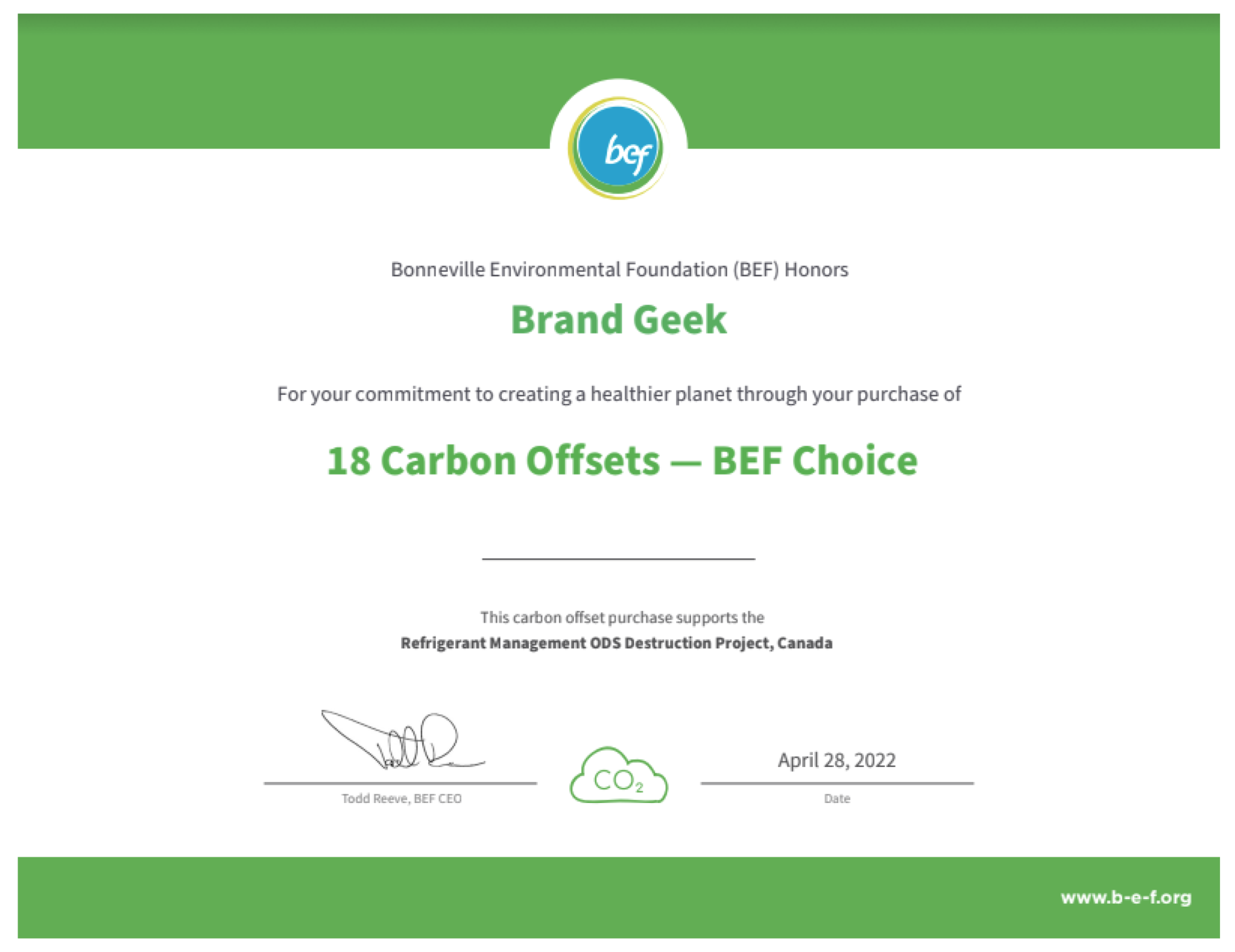Brandgeek proudly supports Mountain Area Preservation and is humbled to be…
Geekview IP Week in Review
Wouldn’t you sue if your late husband was the one who put Flint, Michigan on the map (of rap that is)?

I began the first week in August with my new favorite rag, HipHopDX, which published an article on Monday about late rapper MC Breed‘s wife’s recent copyright infringement suit against fellow Flint, Michigan hip hop artist Jon Connor. I could not find any such suit on PACER, so my guess is that negotiations are just beginning. Turns out, folks in Flint, Michigan take hip hop very, very seriously. They seem to disagree however on the differences between paying one’s respects and copyright infringement. MC Breed was a Flint, MI rapper who lived from 1971 till 2008. He was best known for his single, Ain’t No Future in Yo Frontin. Apparently, fellow Flint, MI rapper, Jon Connor, sampled a sound recording from Ain’t No Future in Yo Frontin in his recently released single Ain’t No Future, which he’s been promoting as a tribute to MC Breed. MC Breed’s wife takes issue with Connor’s unauthorized use of MC Breed’s sound recording as well as Connor’s of MC Breed’s name to promote the single. Natasha Breed’s not the only one who’s upset this week about use of her name . . .
Budweiser files tasteless lawsuit.

None too pleased about a giant billboard that appears to publicly call the King of Beers tasteless, Bud filed a trademark infringement complaint against the International Brotherhood of Teamsters and Teamsters Local Union 957 for dilution and false advertising under the Lanham Act and defamation and deceptive trade practices under Ohio state law. Although the ad actually states, “Tell Budweiser Heidelberg’s Destruction of Ohio Jobs is Tasteless,” not all the text is equally prominent. Heidelberg is Bud’s Ohio distributor, over which Bud claims to have no control. Bud takes issue with the billboard’s message that Bud is responsible for or involved in the labor dispute between the Teamsters and Heidelberg, as well as the message Bud is Tasteless, both of which Bud’s trademark lawsuit claims are false and misleading. I don’t know about the labor dispute, but I do wonder what a taste test would reveal. Since we’re talking about taste . . .
Omar Jaso got a taste of civil procedure in his case against Coca-Cola.
 After an unsuccessful lawsuit for criminal copyright infringement against Coca Cola in Mexico, Omar Jaso sued The Coca-Cola Company on July 7, 2010 alleging copyright infringement and numerous related claims based on The Coca-Cola Company’s widespread commercialization of an alleged derivative work (Always Coca-Cola) based on Jaso’s original musical composition, El Juego. The Coca-Cola Co. moved to dismiss Jaso’s case under the applicable statute of limitations and other procedural deficiencies, which motion the district court granted, entering a final judgment in favor of Coke. Jaso timely appealed and the 5th Circuit Court of Appeals, which affirmed the district court’s ruling in numerous aspects, but reversed and remanded as to the ability of Jaso to amend his complaint on his copyright infringement, contributory infringement, Lanham Act and declaratory judgment claims. The court order stated that, “[o]n remand, the district court should address Defendants’ arguments as to various other deficiencies in Jaso’s proposed second amended complaint regarding these remaining claims,” intimating that while procedural errors may have been made, there may be other reasons to dismiss Jaso’s complaint. If thinking about Coke makes you thirsty, grab a burrito and sit a spell . . .
After an unsuccessful lawsuit for criminal copyright infringement against Coca Cola in Mexico, Omar Jaso sued The Coca-Cola Company on July 7, 2010 alleging copyright infringement and numerous related claims based on The Coca-Cola Company’s widespread commercialization of an alleged derivative work (Always Coca-Cola) based on Jaso’s original musical composition, El Juego. The Coca-Cola Co. moved to dismiss Jaso’s case under the applicable statute of limitations and other procedural deficiencies, which motion the district court granted, entering a final judgment in favor of Coke. Jaso timely appealed and the 5th Circuit Court of Appeals, which affirmed the district court’s ruling in numerous aspects, but reversed and remanded as to the ability of Jaso to amend his complaint on his copyright infringement, contributory infringement, Lanham Act and declaratory judgment claims. The court order stated that, “[o]n remand, the district court should address Defendants’ arguments as to various other deficiencies in Jaso’s proposed second amended complaint regarding these remaining claims,” intimating that while procedural errors may have been made, there may be other reasons to dismiss Jaso’s complaint. If thinking about Coke makes you thirsty, grab a burrito and sit a spell . . .
Flying Burritos collide. Pangaea, Inc. is an Arkansas company that owns a US federal registration for THE FLYING BURRITO COMPANY (& design) (FBC) for “restaurant and take out restaurant services.” The Flying Burrito, LLC (FBL) operates an unrelated FLYING BURRITO restaurant in Iowa. FBC sued FBL for infringement of FBC’s THE FLYING BURRITO COMPANY trademark in Arkansas. FBL field and won a motion to dismiss the case in Arkansas for lack of personal jurisdiction because the court found that FBL’s single visit to Arkansas to discuss the potential for obtaining a licensing agreement from FBC was insufficient for Arkansas to exercise personal jurisdiction over FBL. FBC appealed and the Appeals Court affirmed; to take a bite out of FBL’s profits, FBC’s gonna have to fly to Iowa.
Pangaea, Inc. is an Arkansas company that owns a US federal registration for THE FLYING BURRITO COMPANY (& design) (FBC) for “restaurant and take out restaurant services.” The Flying Burrito, LLC (FBL) operates an unrelated FLYING BURRITO restaurant in Iowa. FBC sued FBL for infringement of FBC’s THE FLYING BURRITO COMPANY trademark in Arkansas. FBL field and won a motion to dismiss the case in Arkansas for lack of personal jurisdiction because the court found that FBL’s single visit to Arkansas to discuss the potential for obtaining a licensing agreement from FBC was insufficient for Arkansas to exercise personal jurisdiction over FBL. FBC appealed and the Appeals Court affirmed; to take a bite out of FBL’s profits, FBC’s gonna have to fly to Iowa.
To make matters worse for Pangaea, a North Carolina company named FB Triangle, LLC (FB) filed a concurrent use proceeding against Pangaea before the TTAB (Trademark Trial and Appeal Board). FB claims it in the senior rights owner in the FLYING BURRITO mark, based upon which it seeks to limit the flight path of THE FLYING BURRITO COMPANY to those states in which it currently operates — Arkansas, Oklahoma, Kansas and Missouri — so FB can have rights to FLYING BURRITO throughout the rest of the country. FBL’s Answer to the concurrent use proceeding challenges some of the claims made by FB and states that it does not agree to the geographic limitation as proposed by FB. Who knows where this one will land. While copyright infringement normally will land you in hot water, if you’re a Blink 182 fan it might just land you in their video:
Staying up all night posting homemade music videos on YouTube will either land you in court or a music video.
Res Ipsa Loquitor. While Blink 182 was busy rewarding its fans for indiscreetly infringing its copyrights, a Vegas topless cabaret has been sued for trademark infringement of the DISCREET mark for cabaret services.
Vegas topless cabaret can be discreet; it just can’t call itself that.
 Plaintiff Michael Lathigee sued Michael Saltman for trade dress infringement, unfair competition, and violation of the Anti-cyber-squatting Consumer Protection Act (the ACPA) based on Saltman’s use of the mark, DISCREET GENTLEMEN’S CLUB, which Lathigee claims he acquired as a loan payment from a guy named Peter Rinato. Only in Nevada, right?! The trademark complaint alleges that Rinato used to operate a business on Saltman’s property under the DISCREET GENTLEMEN’S CLUB mark and upon termination of that lease, Saltman and others opened a competitive business in the same spot under the same name without regard to Lathigee’s rights. Lathigee has a pending US federal trademark registration application to register DISCREET on the Supplemental Register (which the PTO found to be unnecessary), but that application was abandoned for failure to file an Office Action response on July 18, 2011; a Notice of Abandonment should issue soon. Meanwhile, Saltman and the other defendants have until September to file their Answer. Vegas isn’t the only place where trademark infringement suits were heating up last week . . .
Plaintiff Michael Lathigee sued Michael Saltman for trade dress infringement, unfair competition, and violation of the Anti-cyber-squatting Consumer Protection Act (the ACPA) based on Saltman’s use of the mark, DISCREET GENTLEMEN’S CLUB, which Lathigee claims he acquired as a loan payment from a guy named Peter Rinato. Only in Nevada, right?! The trademark complaint alleges that Rinato used to operate a business on Saltman’s property under the DISCREET GENTLEMEN’S CLUB mark and upon termination of that lease, Saltman and others opened a competitive business in the same spot under the same name without regard to Lathigee’s rights. Lathigee has a pending US federal trademark registration application to register DISCREET on the Supplemental Register (which the PTO found to be unnecessary), but that application was abandoned for failure to file an Office Action response on July 18, 2011; a Notice of Abandonment should issue soon. Meanwhile, Saltman and the other defendants have until September to file their Answer. Vegas isn’t the only place where trademark infringement suits were heating up last week . . .
Oven IP dispute heats up.
Hearthware has used NUWAVE for ovens since 2002. Starting last year, a company named E. Mishan & Sons started selling a SUPER WAVE OVEN, which it promoted as the SHARPER IMAGE SUPER WAVE OVEN in some infomercials, even though E. Mishan has no apparent relation to the well-known Sharper Image brand, under which no Super Wave oven ever has been produced. Hearthware sued E. Mishan in Illinois last week alleging copyright infringement, trademark infringement, false designation of origin, false advertising, unfair competition and deceptive trade practices and seeking damages not less than $1,000,000.00. I can’t wait to see what E. Mishan & Sons cook up for their response; or will they throw in the dish towel and settle soon? Meanwhile, Comcast found itself in some hot water with DirectTV.
Comcast throws a flag on DirectTV for false advertising.
Comcast claims DirectTV’s “No Extra Charge NFL Sunday Ticket” promotion is false and misleading, as only navigation of a “maze of dense disclaimers and sub-disclaimers” reveals that the NFL Sunday Ticket promotion applies only to new customers who sign a two year contract for premium level service the terms for which apply only to the first year (2011), after which “special renewal rates” will apply. Comcast claims that the “No Extra Charge” claim is literally false and that consumers would only learn this upon reading various forms of media that ultimately lead to explanation of the promotion on DirectTV’s website. Looks like the NFL quarterbacks may not be the only ones to get sacked this season; I bet the court grants Comcast’s preliminary injunction motion causing DirectTV to pull its ads. Outside of the rough and tumble world of football, diamond company Hearts on Fire is taking on De Beers . . .
There’s nothing sublime about De Beers’ infringement.
Hearts on Fire (HOF) charged De Beers with trademark infringement over its federally registered SUBLIME mark for jewelry, upon which it claims De Beer’s SUBLIME SYMMETRY mark infringes. De Beers application to federally register SUBLIME SYMMETRY initially was refused based on HOF’s SUBLIME registration, and HOF thinks it ought to cease all use of the mark and turn its infringing profits over to HOF. De Beers may think HOF’s SUBLIME mark is a diamond in the rough, but De Beers is either going to have to prove that HOF hasn’t really used its SUBLIME mark or that there is no likelihood of confusion between them. Seems to me like De Beers could have exercised a lot more precision when selecting this mark and avoided conflict with HOF.
 The first week of August has provided lots of blog fodder. Please share your thoughts and continue the journey with me next week as we see what the remainder of the month shall bring.
The first week of August has provided lots of blog fodder. Please share your thoughts and continue the journey with me next week as we see what the remainder of the month shall bring.










This Post Has 0 Comments